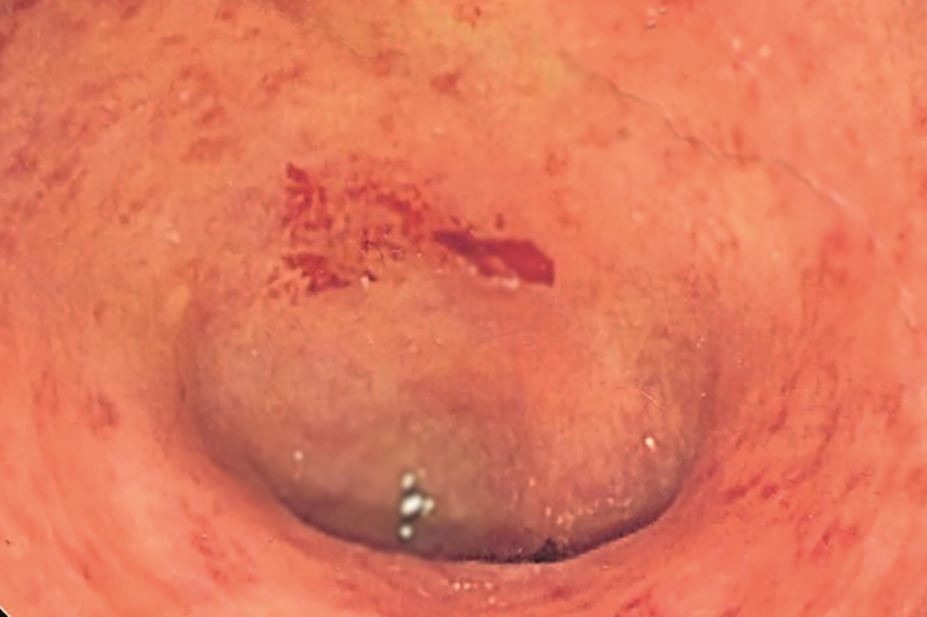
Kauczuk / Wikimedia Commons
It is thought that the oral sphingosine-1-phosphate receptor agonist ozanimod might be effective in ulcerative colitis by reducing the number of activated lymphocytes in the gastrointestinal tract.
Researchers studied its efficacy in a phase II trial involving 197 patients with moderate to severe ulcerative colitis randomly assigned to ozanimod 0.5mg or 1.0mg daily or placebo. Patients could also receive glucocorticoids or aminosalicylates.
The researchers report in The
New England Journal of Medicine (online, 5 May 2016)[1]
that at week eight, 16% of those who received ozanimod 1mg were in remission, significantly more than in the placebo group at 6%. At 32 weeks, patients on the 1mg dose also had higher rates of clinical response, mucosal healing and histologic remission than the placebo group.
The authors conclude that larger studies of longer duration are needed to confirm the safety and efficacy of the drug.
References
[1] Sandborn WJ, Feagan BG, Wolf DC et al. Ozanimod induction and maintenance treatment for ulcerative colitis. NEJM 2016;374:1754-1762. doi: 10.1056/NEJMoa1513248


